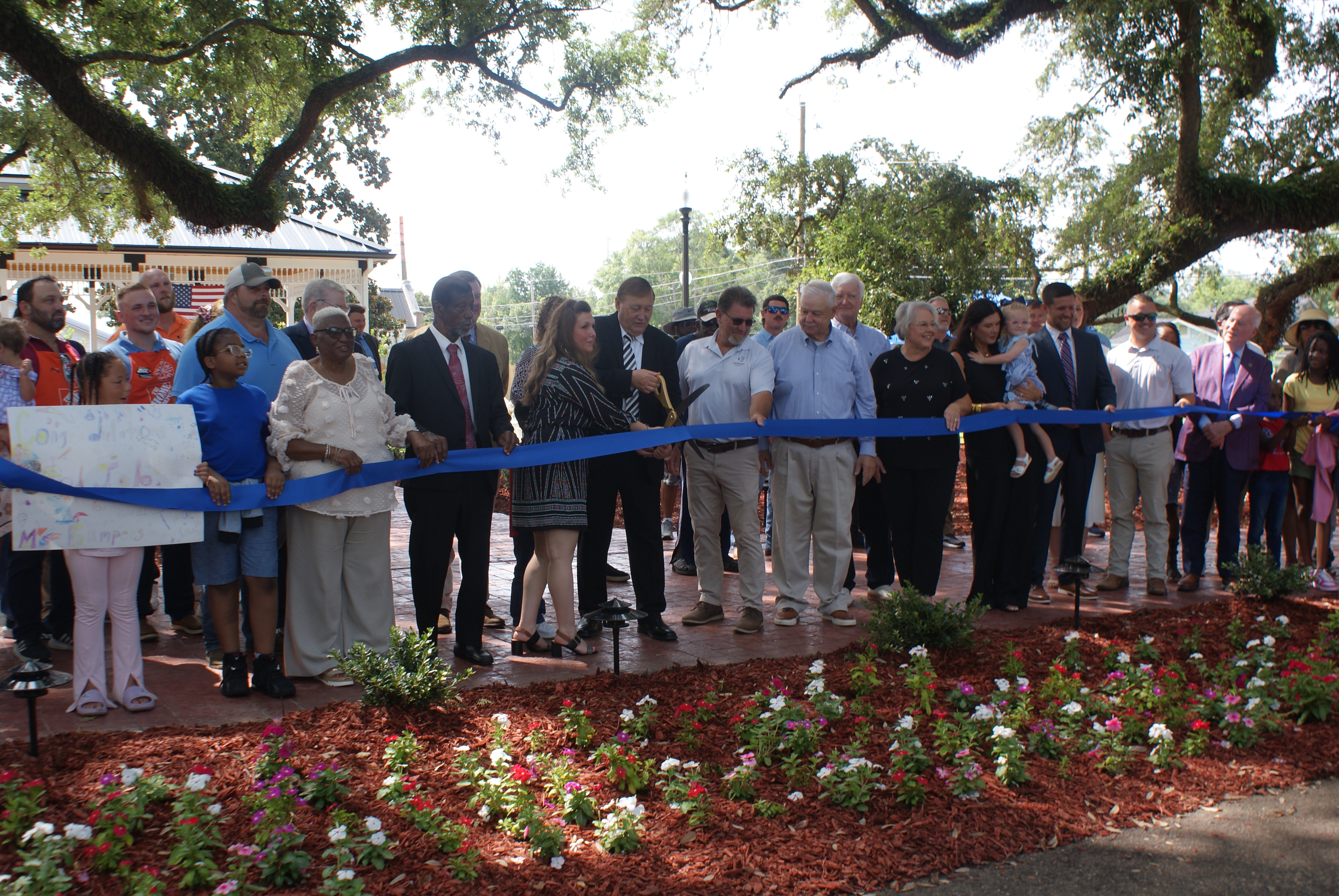AP interview: Gov. Barbour defends budget-cutting plan
Published 12:56 am Sunday, January 3, 2010
AP interview: Gov. Barbour defends budget-cutting plan
By EMILY WAGSTER PETTUS
Associated Press Writer
JACKSON, Miss. (AP) — Gov. Haley Barbour says his legislative agenda is defined by his budget proposal. Beyond that, Barbour says he hasn’t any big surprises for lawmakers when they return to the Capitol on Tuesday for the 2010 session.
During a pre-session interview with The Associated Press, the Republican governor chuckled when asked if he’ll reveal any substantial policy proposals in the coming weeks.
“Some people think I’ve made some pretty big policy proposals, in my budget message,” he said.
Barbour is entering his seventh year in office and can’t seek re-election in 2011. He rattled a wide range of political interests in November when he unveiled his proposed budget for the fiscal year that begins July 1. He said Mississippi’s eight public universities should be merged into five, the 152 school districts should be whittled down to 100 and some smaller state agencies should consolidate their administrative duties. He also said some mental health centers should be closed.
The wide-ranging budget presentation, made as Mississippi faced its 15th consecutive month of revenue shortfalls, contained more detailed and substantial proposals than most budget presentations by Barbour or any other recent governor.
Some lawmakers immediately dismissed his ideas. For example, House Universities and Colleges Committee Chairman Kelvin Buck, D-Holly Springs, said the higher education mergers wouldn’t happen on his watch.
Here are excerpts from Barbour’s hour-long interview with AP:
AP: Were you surprised by the public reaction to your university merger proposal?
Barbour: “Actually, I was surprised that it wasn’t louder.”
AP: Careful what you ask for.
Barbour: “Well, I was. People understand that we have a serious situation and we’ve got to deal with it seriously, and that means doing some things that aren’t business as usual. For many years there have been a significant number of serious people who have said we can’t afford eight universities. There have been a large number of serious people who say it makes no sense to have 152 school districts in a state with 82 counties. To implement my budget or even the Legislative Budget Committee’s budget is going to require some restructuring and some significant changes in the way we provide services.”
AP: If the universities’ mergers were approved, would the biggest savings be in administration?
Barbour: “There would be fewer administrators. We’d save money on athletics, programs like that. There would over time be some resetting of offerings. Candidly, we don’t need eight schools of education in Mississippi. And I think you would see some moving around of offerings, not only graduate offerings but undergraduate courses as well.
AP: What kind of feedback are you getting from legislators on your budget?
Barbour: “Openness to look at new ideas and a recognition that it can’t be business as usual.”
AP: Even from the Democrats?
Barbour: “Mmm-hmm.”
AP: You have no general tax increases in your budget. Legislators have some fees in theirs. What do you think?
Barbour: “We’re trying to learn more about them, particularly as they relate to other states — fees charged by other states for similar services…. What I won’t do is accept any fees that look like they would or even might impede job creation.”
AP: Where do you see the most obvious need for school consolidation? Bolivar County is one area people often mention.
Barbour: “Of course the reason is that Bolivar County has five school districts, which doesn’t make any sense. I (announced) a commission … to study and report to the state Department of Education on the appropriate standards and priorities that should control consolidation of school districts. Such as, school districts that are better performing academically should be less likely to be consolidated, those that perform poorly academically should be more likely. Those that have good financial management should be less likely; bad financial management, more likely. An abundance of resources, financial resources, less likely. A shortage of financial resources should be more likely. Proximity should have a significant role in determining whether two school districts should be joined together.”
AP: Do you think local communities should get to vote on consolidation? Or is the issue so difficult that the state would have to order consolidations?
Barbour: “I haven’t thought that far…. Clearly, once you set the standards and priorities that would lead to this, then the public has got to become well informed of them and understand them. Whether you’d go beyond that, what’s the alternative? … I was surprised when I got here that there was no appetite in the legislature for consolidation of our 152 school districts. But the reason is, of course, they’re afraid of it politically. And if you know that’s the basis for their unwillingness to deal with it, is the right way to deal with it then to have a referendum?”
AP: If legislators go along with this, are you going to cover their backs when they run for re-election?
Barbour: “On this I would — Republicans, Democrats or Mugwumps. I mean, this takes courage. It takes courage on both sides, by the way. The districts that fear they’re going to be eliminated. But also there’s just as much fear in some districts that they’re going to have some bad school district consolidated into their good school district.”
AP: You propose closing some mental health facilities. What happens to the people who are getting services there?
Barbour: “Nationally, for more than a generation, there has been a move toward people with mental disabilities, developmental disabilities, mental retardation to be treated at home and in the community rather than institutionalized. While this change was going on in America and was widely applauded because the outcomes were better, Mississippi continued to have a huge bias for institutionalization.
“I mean, first big mental health fight I had to fight — building and funding these so-called crisis centers. Well, it costs the taxpayers more than $500 a day per bed in these crisis centers, and now we see that most of the people that are treated there aren’t in crisis. They’ve just become the local, easier to get to, don’t have to send Junior to East Mississippi or to Whitfield or whatever.
“With the amount of money that the legislative budget committee has recommended for mental health, which is only slightly more than I’ve recommended for mental health, I don’t believe we’re going to be able to institutionalize as many people. The good news is, we are learning that if we follow some different paths, we don’t have to institutionalize as many people.
“You may have noticed in my budget that I said I did not recommend closing the Grenada crisis center. The reason is, they have changed … the methodology there, the treatment regime, and now within a very short period of time, 86 percent of the people who got put there and called a crisis are able to go back home or into the community instead of to institutionalization. That’s what we should want.”
AP: What’s happening with the unopened Toyota plant in northeast Mississippi?
Barbour: “When Toyota has something to announce, I’m sure they’ll tell us. At the same time, I am pleased by the attitude of people in the area. We had most of the community college presidents in … and I was struck by their optimism — that they’re going forward with some projects to get ready to train workers. But, like I say, I know whenever Toyota has something to announce, I know we’ll hear from them.”





